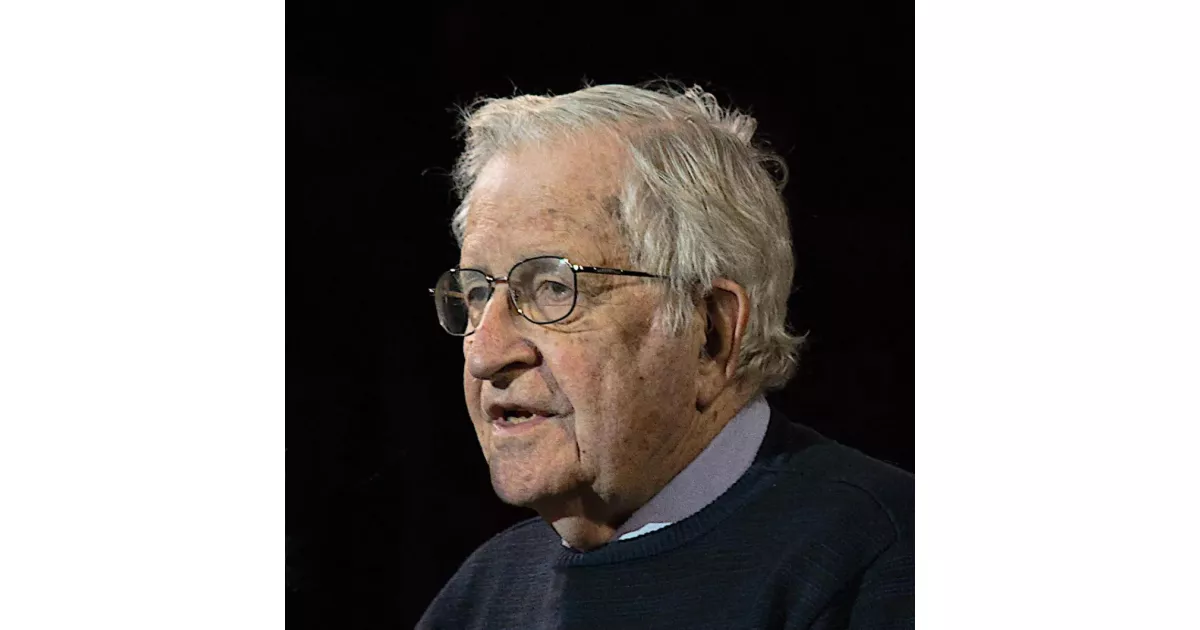Life is full of challenges, and Noam Chomsky faced many. Discover key struggles and how they were overcome.
Noam Chomsky is a highly influential American linguist, philosopher, cognitive scientist, and political activist. He is renowned as the "father of modern linguistics" for his groundbreaking theories on universal grammar. Chomsky is also a prominent figure on the American left, known for his sharp critiques of U.S. foreign policy, capitalism, and the role of corporations and media in shaping political discourse. He has authored over 150 books on diverse topics, solidifying his place as one of the most cited living authors.
1980: Faurisson Affair
In 1980, Chomsky defended Robert Faurisson's right to freedom of speech, leading to accusations of Holocaust denial and damaging his career, especially in France, after his plea for Faurisson's freedom of speech was published as the preface to Faurisson's book.
2004: Accusations of Cherry-Picking Facts
In the 2004 book The Anti-Chomsky Reader, Peter Collier and David Horowitz accused Chomsky of cherry-picking facts to suit his theories. Horowitz also criticized Chomsky's anti-Americanism.
January 2006: Criticism of Financial Practices
In January 2006, Peter Schweizer criticized Chomsky for setting up an estate plan and protecting his intellectual property, as well as the high speaking fees he received, around $9,000–$12,000 per talk at that time, in a publication for the Hoover Institution.
September 2012: Criticism of Chomsky's Ideology
In September 2012, Nikolas Kozloff wrote for Al Jazeera that while Chomsky deserves credit for highlighting the misdeeds of the U.S. and its proxies, he has become an ideologue by avoiding controversy at all costs, such as significant discussion of Belarus or Latin America's authoritarian leaders.
2016: Criticism from President Erdoğan
In early 2016, President Recep Tayyip Erdoğan of Turkey publicly rebuked Chomsky after he signed an open letter condemning Erdoğan for anti-Kurdish repression and double standards on terrorism. Chomsky accused Erdoğan of hypocrisy, noting his support for al-Qaeda's Syrian affiliate.
2023: Stroke and Hospitalization
In 2023, Chomsky suffered a massive stroke and was taken to a hospital in São Paulo, Brazil, for recovery. He lost the ability to walk or communicate, casting doubt on his return to public life, though he continued to follow current events.
Mentioned in this timeline
California is a U S state on the Pacific Coast...
India officially the Republic of India is a South Asian...
Germany officially the Federal Republic of Germany is a nation...
Belarus is a landlocked country in Eastern Europe bordered by...
Pennsylvania is a U S state located in the Mid-Atlantic...
Arizona is a landlocked state in the Southwestern U S...
Trending

26 minutes ago Clara Tauson Dominates Linette in Dubai, Secures WTA 1000 Quarterfinal Spot

26 minutes ago Pegula Defeats Jovic, Advances to Dubai Quarterfinals; Set to Face Tauson
26 minutes ago Toyota Supra and Lexus LC May Share Platform for Next Generation Models
27 minutes ago Alaska Airlines pilots get shocking pay raises, reshaping network and margins.
27 minutes ago Ramadan 2026 Timetable: Fasting Hours, Suhoor, and Iftar Times Worldwide Confirmed.
1 hour ago Ski Mountaineering to Debut at Milan-Cortina Winter Olympics in 2026.
Popular

Jesse Jackson is an American civil rights activist politician and...
Randall Adam Fine is an American politician a Republican who...

Pam Bondi is an American attorney lobbyist and politician currently...

Barack Obama the th U S President - was the...

Martin Luther King Jr was a pivotal leader in the...

Ken Paxton is an American politician and lawyer serving as...
